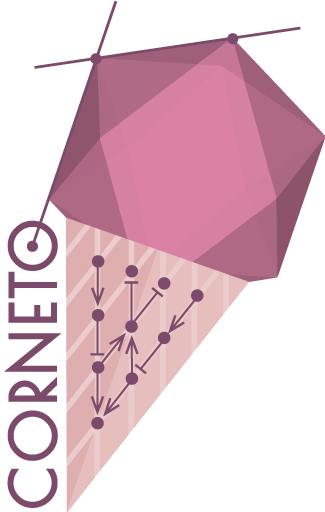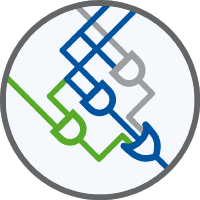CORNETO (Constraint-based Optimization for the Reconstruction of NETworks from Omics) is a unified network inference framework implemented in Python designed to bring together many common network inference problems in biology. Through constrained optimisation, CORNETO transforms these problems into unified mathematical representations using flow networks, offering modular building blocks for diverse applications.
⚠️ Disclaimer: This is an early preview of the CORNETO library. CORNETO is under active development and has not yet reached a stable release for end users. Contributions and feedback are not yet open until the first stable release. Please stay tuned for updates.
The library will be uploaded to pypi once the API is stable. Meanwhile, it can be installed by downloading the wheel file from the repository. It's recommended to use also conda to create a new environment, although it's not mandatory.
CORNETO does not include any backend nor solver by default to avoid issues with architectures for which some of the required binaries are not available. The recommended setup for CORNETO requires CVXPY and Gurobi:
pip install corneto cvxpy scipy gurobipyPlease note that GUROBI is a commercial solver which offers free academic licenses. If you have an academic email, this step is very easy to do in just few minutes: https://www.gurobi.com/features/academic-named-user-license/. You need to register GUROBI in your machine with the grbgetkey tool from GUROBI.
Alternatively, it is possible to use CORNETO with any free solver, such as HIGHS, included in Scipy. For this you don't need to install Gurobi. Please note that if gurobipy is installed but not registered with a valid license, CORNETO will choose it but the solver will fail due to license issues. If SCIPY is installed, when optimizing a problem, select SCIPY as the solver
# P is a corneto problem
P.solve(solver="SCIPY")
⚠️ Please note that without any backend, you can't do much with CORNETO. There are two supported backends right now: PICOS and CVXPY. Both backends allow symbolic manipulation of expressions in matrix notation.
CORNETO is developed at the Institute for Computational Biomedicine (Heidelberg University). The development of this project is supported by European Union's Horizon 2020 Programme under PerMedCoE project (permedcoe.eu) agreement no. 951773.

